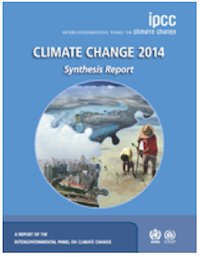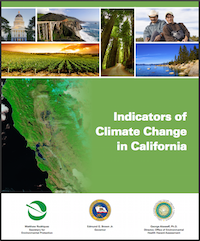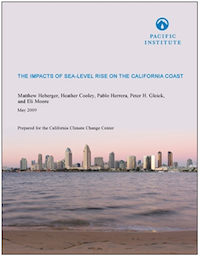Climate Change Assessments and Reports
 |
GlobalThe leading organization concerned with analyzing climate change on a global scale is the Intergovernmental Panel on Climate Change (IPCC). The Fifth IPCC Assessment Report, completed in 2014, compiles scientific, technical, and socio-economic information produced worldwide to assess the current state of climate change. The IPCC is currently in its Sixth Assessment cycle, with a new report planned in 2022 in time for the first global stocktake under the Paris Agreement. NationalNational climate change trends and impacts are assessed by the U.S Global Change Research Program. The Fourth National Climate Assessment (NCA4), completed in November 2018, is a comprehensive and authoritative report on climate change and its impacts in the United States. Volume I: Climate Science Special Report presents an assessment of the physical science The previous assessment was completed in 2014 and is available as the National Climate Assessment (NCA). The report is presented in an interactive website that breaks down the effects of climate change on every sector and region in the United States. |
CaliforniaThere have been four California Climate Change Assessments conducted by collaborating government agencies. The First Assessment provides climate change related impacts on a regional scale; the Second Assessment (2009) projects the economic risks of climate change; the Third Assessment (2012) focuses on state vulnerabilities to climate change; the Fourth Assessment, completed in 2018, compiles information needed to make decisions that will safeguard the people, economy, and resources of California in a changing climate. These assessments are guided by the state's Climate Change Research Plan and have resulted in the development of the California Climate Adaptation Strategy, called Indicators of Climate Change in California report released by the Office of Environmental Health Hazard Assessment (OEHHA) in 2013 compiles trends in greenhouse gas levels that influence climate change in California. Chapter 9 in the California Energy Commission (CEC) Integrated Energy Policy Report (updated each year since 2014) focuses on greenhouse gas emission reduction and safeguarding the state’s energy production needs in the face of climate change. |
 |
 |
Sea level rise due to anthropogenic warming has been of major concern for California resulting in a number of assessments being performed to address the issue. One of the first studies to be released about the topic was The Impacts of Sea Level Rise on California (2009), conducted by the California Climate Change Center. This study provides an in-depth analysis of the ways in which sea level rise will impact the infrastructure and economy of the California coast. More recently, the CA State Assembly Select Committee on Sea Level Rise and the California Economy report, released in 2014, compiled current scientific and industry information on how sea level rise will affect California’s economy. In January of 2017 the Sea Level Rise and Coastal Flood Hazard Scenarios and Tools Interagency Task Force released the NOAA Technical Report Global and Regional Sea Level Rise Scenarios for the United States, updating scenarios of global mean sea level rise and integrating the global scenarios with regional factors contributing to sea level change for the entire U.S. coastline. In April 2017 a working group of the California Ocean Protection Council Science Advisory Team released a major report entitled Rising Seas in California: An Update on Sea-Level Rise Science. |
Regional and LocalThere are many regional and local assessments done and being done, and we continue to catalog them in the Climate Commons-- please see search results for keywords "climate change assessment" and "climate impacts", and also see our Location keywords for your region of interest. For more specific regional assessments and also mitigation-based information, the Georgetown Climate Center has a map interface to state and local adaptation plans, as well as an extensive list of California’s current laws and policies concerned with climate change, and state agency and regional climate change mitigation plans. A good example of a regional assessment is the National Park Service's Impacts to the Pacific Coast. A good example of a local assessment is Sonoma County's Climate Action 2020 effort and Climate Ready Sonoma County: Climate Hazards and Vulnerabilities, for which the County received recognition from the White House in 2014 for exemplary climate change preparation. |
6/2020
